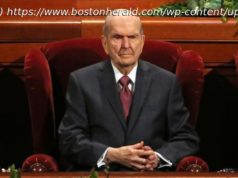From the left: Dems botching SCOTUS politics Democrats still carping over Senate Majority Leader Mitch McConnell’s refusal to allow a vote on Supreme Court nominee…
From the left: Dems botching SCOTUS politics
Democrats still carping over Senate Majority Leader Mitch McConnell’s refusal to allow a vote on Supreme Court nominee Merrick Garland in 2016 “need to look in the mirror,” suggests Bloomberg’s Al Hunt. Their party “set the stage for their powerlessness to affect the court choice” by trying to block Neil Gorsuch, “and their reaction just deepens their political anguish.” Recall also that in 2013,Democrats “paved the way for McConnell’s gambit” by changing the rules to allow majority-vote confirmation of court choices. Now they’re “compounding their past miscalculations by making today’s fight almost exclusively about abortion,” hoping to persuade Maine Republican Susan Collins to vote no. But that’s “delusional,” says Hunt: She “will not be the 50th vote against a Trump nominee.”
Political scribe: New York’s unions face bleak future
The immediate repercussion of the Supreme Court’s Janus ruling that public-sector workers who don’t join a union can’t be forced to pay dues-like fees will be a blow to some unions’ finances. But Crain’s New York’s Greg David says “the real impact will play out over several years.” Private-sector unions may represent more New Yorkers, but “the real strength of organized labor here comes from the public sector, where a little less than 70 percent of employees belong to unions,” twice the national percentage. The key question: “whether the unions will lose members who joined only because they were going to have to pay dues whether they did or not.” The Manhattan Institute’s Daniel DiSalvo predicts union membership in New York will drop by 15 to 30 percent. If true, “union clout in the state will recede dramatically.”
Nikki Haley: UN issues ridiculous report on US poverty
The United Nations has issued a harshly critical report (based on a single researcher’s trip to just four states) on poverty in America, accusing the US of working to “punish those who are not in employment.” UN Ambassador Nikki Haley at National Review calls it “patently ridiculous” for the UN to spend its resources “studying poverty in the wealthiest country in the world, a country where the vast majority is not in poverty, and where public and private-sector social safety nets are firmly in place to help those who are.” The report even calls for “ ‘decriminaliz[ing] being poor’ (never mind that nowhere in America is it a crime to be poor).” Says Haley: “When the UN wastes American tax dollars, like it did on this unnecessary, politically biased and factually wrong report, we’re going to call it out for the foolishness that it is.”
Obama official: Abolishing ICE is not a serious proposal
“Abolish ICE” may make for “a good rallying cry on the left,” but former Homeland Security Secretary Jeh Johnson says demanding abolition of Immigration and Customs Enforcement “is about as serious as the claim that Mexico’s ‘gonna pay for the wall.’ ” It “provides President Trump with a useful weapon for bludgeoning Democrats politically” — and “a good portion of the American public will listen to him.” Fact is, “the outright abolition of ICE would compromise public safety.” Politically, calls to do so can only damage “any remaining prospect of bipartisan immigration reform.” This, he says, “is one of the things Americans hate about Washington: that politics has become the ends, not the means.”
Economist: People are returning to the labor force
Nine years after the end of the Great Recession, observes Evan Kraft at The Hill, “the US economy has achieved an unemployment rate comparable to the boom period of the late 1990s.” Better still, “some 600,000 people rejoined the labor market last month actively looking for work, a sign that jobs are indeed out there, and people are motivated to look for them.” This recovery “is broad-based, with employment growing in almost all sectors of the economy.” And the increase in the labor force “confirms suspicions that we have not reached full employment yet.” Moreover, this helps explain the slow growth of wages: “If there still are people out there who answer help wanted ads, employers do not feel so much pressure to raise wages just to keep their businesses producing at the desired level.”
— Compiled by Eric Fettmann






